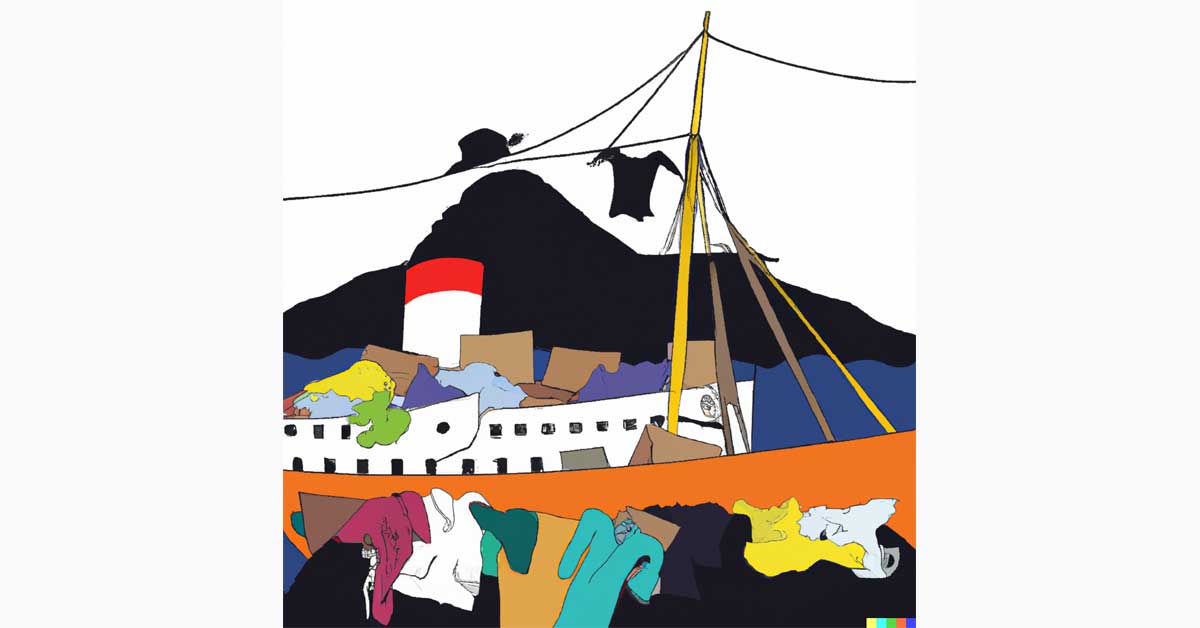

28 June 2023
 The charitable organization Humana Austria reacted to the presentation of a new study concerning 'waste colonialism' to Chile and showed how second-hand clothing can have a positive impact on society and the environment. Two days ago, the Austrian foundation Común presented the results of a United Nations study on the business of used and unused clothing in Chile with imports from mainly Southeast Asia and Europe as a world exclusive at the Presseclub Concordia in Vienna in the run-up to the 'Konsumdialoge: Textilien' in Hallein in Salzburg. Fashion.at recently published an article about the program of the upcoming three-day event. The author of the study, ECLAC consultant Beatriz O'Brien, spoke about the business with used clothing and its social impact at the ECLAC (United Nations Economic Commission for Latin America and the Caribbean) meeting in Santiago, Chile, in April of this year, entitled "The role of international trade in circular fashion: challenges and opportunities". In Vienna, the impact of the fast fashion industry on water pollution, microplastic emissions and climate damage was highlighted, with a particular focus on new garments from EU fashion companies. The study found that European fashion companies dump their unsold clothing in countries in the global south, such as Chile, contributing to environmental pollution and harming local communities. The 'waste colonialism', as the practice of dumping old clothes in Chile has been called, arrives in Chile through various ports. Parts of the clothes are sold in the region at low prices. Unsold clothes are often burned. The health risks and environmental pollution from microplastics and chemicals was a theme of the presentation at Presseclub Concordia, where the Común foundation emphasized the need to hold corporations accountable and called for the protection of human rights and environmental standards throughout the textile value chain. The author of the study, Beatriz O'Brien, explained that the waste that the people of the Tarapacá region have to deal with is not their own. The waste problem is part of a global consumer society that continues to grow and expand and has engulfed the region and the country, making it difficult, if not impossible, for a once thriving local textile industry to recover. It's announced that Beatriz O'Brien will speak about the results of the study during the 'Konsumdialoge: Textilien' event in Hallein, Salzburg. The full study will be presented in Chile this autumn. The presentation of the results quickly met with a response. One day later, Humana Austria, a member of the international network of charitable organizations, released a statement about its reliable and sustainable clothing collection and its commitment to preventing environmental pollution. The organization collects used clothing and shoes via containers in seven Austrian federal states, with a collection volume of 7,180 tons in 2022. Humana currently operates 22 stores in Austria where consumers can purchase used clothing. For a better overview of the amount of material collected, reused and recycled, Humana published official data from the Austrian Federal Environment Agency: 67.3% of the collected items are reused, 23% are recycled and 9.7% are classified as textile waste. The collected items are sorted in Humana's own sorting plant in Slovakia or in other facilities. Clothing and shoes suitable for recycling are reused as cleaning rags, insulation wool or fibers. Damaged or heavily soiled items that cannot be reused are considered waste and may be thermally recycled (incinerated). Before Humana sends clothing and shoes to developing countries, they are thoroughly inspected according to strict criteria to ensure their quality and suitability for local use. In close cooperation with local NGOs, the funds generated from clothing donations support various charitable projects in Angola, DR Congo, India, Mozambique, Namibia and South Africa, focusing on education, village development, health, children's aid, agriculture and teacher training. Image: Fashion.at created a "Symbol picture for an article about waste colonialism showing a ship and a mountain of clothing in a port in Chile" at DALL-E 2 (openai.com/dall-e-2) on 28 June 2023. |